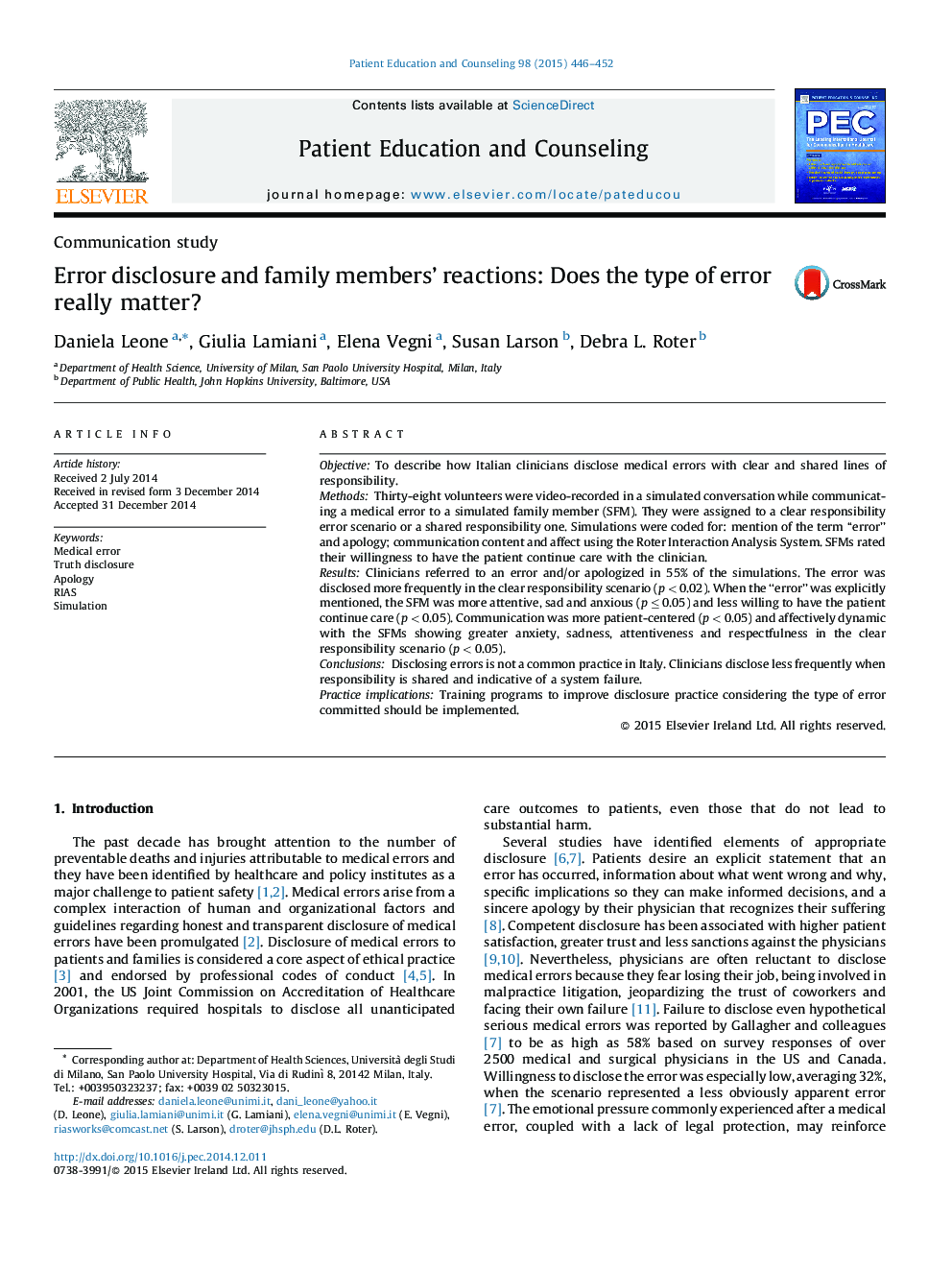| Article ID | Journal | Published Year | Pages | File Type |
|---|---|---|---|---|
| 3813707 | Patient Education and Counseling | 2015 | 7 Pages |
•Mentioning the error and apologizing seemed not to be common practice.•The type of error (clear vs shared responsibility) affected the practice of disclosure.•Communicating medical errors elicits strong negative emotions by patients.•Specific training programs to improve disclosure practice should be implemented.
ObjectiveTo describe how Italian clinicians disclose medical errors with clear and shared lines of responsibility.MethodsThirty-eight volunteers were video-recorded in a simulated conversation while communicating a medical error to a simulated family member (SFM). They were assigned to a clear responsibility error scenario or a shared responsibility one. Simulations were coded for: mention of the term “error” and apology; communication content and affect using the Roter Interaction Analysis System. SFMs rated their willingness to have the patient continue care with the clinician.ResultsClinicians referred to an error and/or apologized in 55% of the simulations. The error was disclosed more frequently in the clear responsibility scenario (p < 0.02). When the “error” was explicitly mentioned, the SFM was more attentive, sad and anxious (p ≤ 0.05) and less willing to have the patient continue care (p < 0.05). Communication was more patient-centered (p < 0.05) and affectively dynamic with the SFMs showing greater anxiety, sadness, attentiveness and respectfulness in the clear responsibility scenario (p < 0.05).ConclusionsDisclosing errors is not a common practice in Italy. Clinicians disclose less frequently when responsibility is shared and indicative of a system failure.Practice implicationsTraining programs to improve disclosure practice considering the type of error committed should be implemented.
